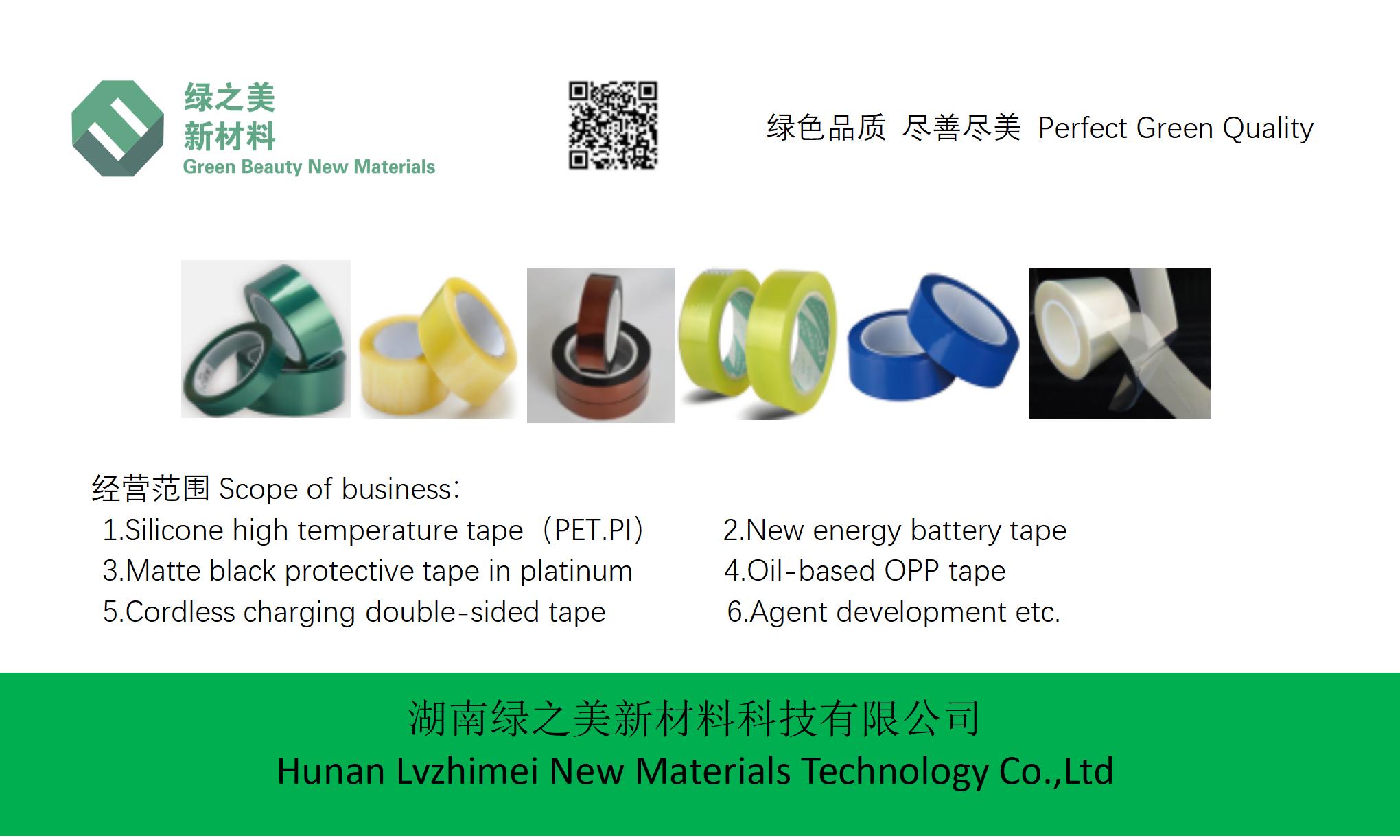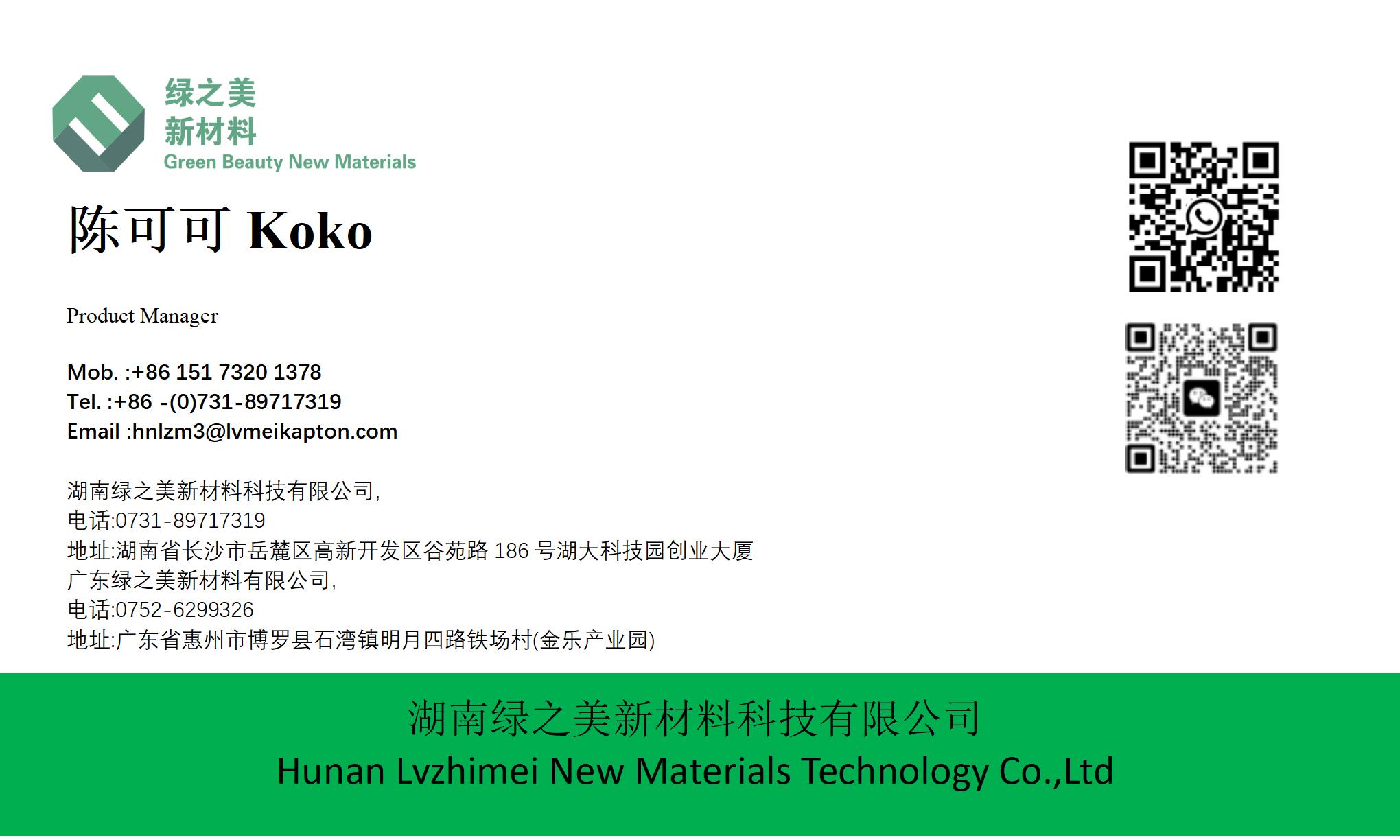hnlzm@lvmeikapton.com
+86 13787123465


Hunan Lvzhimei New Material Technology Co., Ltd.


NameDescriptionContent
Why Is Lvmeikapton Insulating Electrical Tape Reliable? |https://www.lvmeikapton.com/
Source:
|
Author:Koko Chan
|
Published time: 2025-05-23
|
2 Views
|
Share:
Lvmeikapton insulating electrical tape has emerged as a cornerstone in industrial and electronic applications, renowned for its exceptional performance in extreme conditions. This article delves into the factors that underpin its reliability, exploring its electrical insulation properties, durability under rigorous testing, and real-world user testimonials. By analyzing these aspects, we aim to shed light on why Lvmeikapton tape stands out in critical environments where safety and efficiency are paramount.
Why Is Lvmeikapton Insulating Electrical Tape Reliable?
IntroductionLvmeikapton insulating electrical tape has emerged as a cornerstone in industrial and electronic applications, renowned for its exceptional performance in extreme conditions. This article delves into the factors that underpin its reliability, exploring its electrical insulation properties, durability under rigorous testing, and real-world user testimonials. By analyzing these aspects, we aim to shed light on why Lvmeikapton tape stands out in critical environments where safety and efficiency are paramount.
1. Electrical Insulation Properties: The Foundation of ReliabilityThe reliability of Lvmeikapton tape hinges on its superior electrical insulation capabilities, which are essential for safeguarding equipment and preventing electrical failures. Key properties include:
1.1 High Dielectric StrengthLvmeikapton tape exhibits an impressively high dielectric strength, typically ranging from 20 to 30 kV/mm. This property ensures that the tape can withstand high voltages without breakdown, making it suitable for applications involving transformers, motors, and high-voltage cable joints. Its resistance to electrical stress is particularly vital in environments where voltage fluctuations are common.
1.2 Low Dielectric Constant and Dissipation FactorThe tape’s low dielectric constant (around 3.2) and dissipation factor (≤0.001) minimize energy losses and heat generation in electrical circuits. This characteristic is crucial for maintaining system efficiency, especially in high-frequency applications like 5G infrastructure and aerospace electronics. The material’s stability at frequencies up to 10 GHz further enhances its reliability in modern technologies.
1.3 Chemical ResistanceLvmeikapton tape resists corrosion from acids, alkalis, oils, and solvents, ensuring its insulation properties remain intact even in chemically harsh environments. This resilience is particularly beneficial in industrial settings where equipment is exposed to corrosive substances, reducing the risk of insulation degradation and subsequent electrical hazards.
2. Durability Tests: Proven Performance Under Extreme ConditionsTo ascertain Lvmeikapton tape’s reliability, extensive durability tests have been conducted across various stressors. Key findings include:
2.1 Temperature EnduranceThe tape’s core material—polyimide film (Kapton)—is engineered to withstand temperatures from -269°C to 400°C. Testing has validated its stability at both extremes: after 1000 hours at 260°C, the tape demonstrated minimal adhesive degradation and no delamination. This makes it ideal for applications near engine components in automobiles or high-temperature electronics.
2.2 Mechanical DurabilityMechanical tests involving repeated bending, abrasion, and tensile strength assessments revealed remarkable resilience. Lvmeikapton tape exhibited no tears or adhesive failures after 10,000 cycles of 180° bending, and its tensile strength remained above 150 N/cm even after prolonged exposure to UV radiation. Such durability ensures long-term performance in vibration-prone environments.
2.3 Aging and Humidity ResistanceAccelerated aging tests (per ASTM D573) showed that the tape retained over 90% of its initial properties after 5000 hours in 85% humidity at 85°C. Additionally, salt spray tests (ASTM B117) confirmed resistance to corrosion, maintaining insulation integrity even in coastal or industrial environments with high salt concentrations.
2.4 Comparative AnalysisTable 1 below illustrates Lvmeikapton tape’s performance against other common insulating materials:
Property | Lvmeikapton | PVC Tape | Silicone Rubber |
Max Temperature | 400°C | 105°C | 200°C |
Dielectric Strength | 30 kV/mm | 18 kV/mm | 25 kV/mm |
UV Resistance | Excellent | Poor | Moderate |
Chemical Resistance | Outstanding | Limited | Good |
3. User Testimonials: Real-World ValidationFeedback from diverse industries underscores Lvmeikapton tape’s reliability:
3.1 Automotive ManufacturingA leading automotive OEM reported: “Lvmeikapton tape has been integral in our hybrid vehicle production lines. Its ability to withstand engine temperatures up to 200°C and resist oil leaks has reduced cable failures by 70% over the past two years.” This testimonial highlights its efficacy in maintaining electrical systems under intense mechanical and thermal stress.
3.2 Electronics AssemblyAn electronics manufacturer in China shared: “During SMT production, we rely on Lvmeikapton tape for transformer insulation. Its consistent adhesion and resistance to soldering flux prevent short circuits, minimizing costly rework.” The tape’s compatibility with high-temperature soldering processes (up to 350°C) is a key advantage.
3.3 Aerospace ApplicationsA European aerospace engineer noted: “Lvmeikapton tape’s lightweight and high-strength properties are ideal for aircraft wiring harnesses. Its resistance to radiation and extreme altitudes ensures safe operation even in critical avionics systems.” This feedback emphasizes its role in mission-critical environments.
4. Selecting Lvmeikapton: Key Considerations for Optimal ReliabilityTo maximize reliability, users should consider:
4.1 Temperature Rating匹配Choose tapes with appropriate temperature ratings (e.g., Class H for 180°C or Class N for 260°C) based on application demands. Incorrect selection may lead to premature degradation.
4.2 Surface PreparationEnsure substrates are clean and dry for optimal adhesion. Contaminants or moisture can compromise insulation integrity over time.
4.3 Storage Best PracticesStore Lvmeikapton tape in阴凉, dry environments (≤30°C, ≤70% RH) to prevent adhesive curing or film brittleness. Avoid direct sunlight and heavy stacking to maintain flatness.
4.4 Application TechniquesWrap the tape with 50% overlap and apply tension to eliminate air pockets, which can lead to corona discharge or moisture ingress.
ConclusionLvmeikapton insulating electrical tape’s reliability stems from its robust electrical properties, durability validated through stringent testing, and widespread success across industries. As technological advancements demand increasingly harsh operating conditions, this tape’s ability to maintain performance at extremes ensures it remains a trusted choice. By understanding its capabilities and implementing proper handling practices, users can leverage Lvmeikapton tape to enhance safety, efficiency, and longevity in their electrical systems.



Hunan Lvzhimei New Material Technology Co., Ltd.
Quick Links
Product Categories
© 2024 Hunan Lvzhimei New Material Technology Co., Ltd.All Rights Reserved. Designed by Erge
0731 - 89717319
hnlzm@lvmeikapton.com
+86 13787123465
Room 502, Chuangye Building, No186, Guyuan Road, High-Tech District, Changsha, Hunan, China
CONTACT



